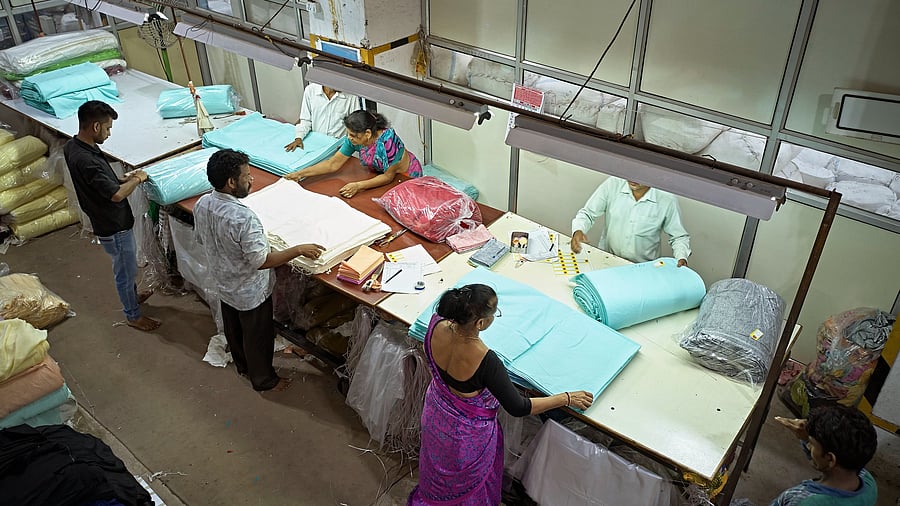
Representative image
Credit: iStock Photo
As the world gears up to celebrate the MSME Day, the micro, small, and medium enterprises (MSMEs) in India stand at transformative crossroads.
Effective from April 1, the classification limits for MSMEs have been raised dramatically: with the investment caps increased by 2.5 times and the turnover limits doubled. Micro enterprises can now have investments in plant and machinery or equipment up to ₹2.5 crore, and record turnover up to ₹10 crore, while small enterprises can go up to ₹25 crore and up to ₹10 crore respectively, and medium enterprises can scale up to ₹125 crore in investment and ₹500 crore in turnover. The move is a shot in the arm for MSMEs, helping them scale up without losing access to government sops for the sector. It also serves as a boost to job creation and capital expenditure.
While growth ambitions are fuelled on the one side, the MSME sector is riddled with several challenges that continue to cast a long shadow over the sector’s progress: the persistent problem of lower bargaining power vis-à-vis their bigger customers, resultant delayed payments and liquidity crises, inability to withstand competition from big players who can harness the benefits of economies of scale, unorganised and informal nature of operations, slower adoption of technology, relative inaccessibility of low-cost funding options, to name a few.
Scaling up brings new complexities and risks: larger operations, more employees, wider supply chains, and more exposure to market fluctuations. Hence, to scale up confidently, MSMEs must learn to straddle both resilience-building and growth ambitions.
Building resilience in MSMEs requires a comprehensive multi-pronged approach. The pandemic, for one, taught us that resilience is not a luxury but a necessity.
Diversified Funding and Prudent Credit Management: To scale up, MSMEs need new funding. With enhanced credit guarantee schemes, roll out of credit card facilities for MSMEs, bill-discounting facilities, especially the TReDS platform (Trade Receivables Discounting System), and digital lending platforms, the sector now has more options than before. However, prudent financial management is crucial.
To keep the cost of capital minimum and to avoid mismatch of cash inflows and outflows, MSMEs should diversify funding sources and judiciously mix and match them. This also avoids over-reliance on any single funding channel. Maintaining healthy cash reserves and tracking receivables are evergreen essentials, especially given the challenge of delayed payments.
Digital Transformation: Digital adoption is no longer optional. Implementing cloud-based accounting, ERP (Enterprise Resource Planning) and basic GRC (Governance, Risk and Compliance) systems, will help streamline operations, build better internal controls, and ring in good governance. It sure will entail initial cash outflows, but it will pay for itself many times over, by building reliable systems that infuse growth with discipline.
Opting for software-as-a-service or infrastructure-as-a-service models offers flexibility to scale up or down as needed, on demand and on the go. Embracing agentic AI and generative AI in various processes can simplify and strengthen processes, while AI-driven analytics can help MSMEs predict market trends and manage risks proactively. E-commerce platforms and digital marketing avenues can open new revenue streams, and reduce dependence on local markets, providing a buffer against the vagaries of local demand.
Supply Chain and Market Diversification: As growth beckons, building resilient supply chains is indispensable. MSMEs must build relationships with multiple suppliers, explore local sourcing as well as imports, wherever appropriate, and leverage digital procurement tools to ensure seamless on-tap procurement. Similarly, on the downstream side of the supply chain, exploring new distribution channels, and tapping into export markets or diversifying into different regional customer bases can help spread risk while unlocking new growth avenues.
Governance and Compliance: As MSMEs scale, robust governance becomes critical. This is more so if MSMEs want to approach private equity or hit the public market through equity IPOs, which will give access to large capital without necessitating interest payments or mandatory repayments. Regular statutory and internal audits, tax and labour law compliance, robust accounting, and adherence to other legal and regulatory requirements demonstrate accountability, build investor confidence, and help prevent governance failures.
Sustainability: Adopting sustainable practices like energy efficiency, waste reduction, ethical sourcing and hiring practices, can have a multiplier effect on resilience. Not just that, sustainable practices are increasingly demanded by end customers and investors. Embracing sustainability and demonstrating it through sustainability reporting not only reduces operational risks but also enhances brand value and opens doors to new markets.
The road ahead for MSMEs is lush with opportunities, while also being freckled with risks. It is all about dreaming with eyes open, while staying grounded, and keeping the business guarded against the known unknowns and the unknown unknowns. For now, it is time to celebrate India’s entrepreneurial spirit with renewed fanfare and fervour.
Usha Ganapathy Subramanian is a Chennai-based practising company secretary, and Ranjith Krishnan is a Thane-based sustainability consultant.
Disclaimer: The views expressed above are the author's own. They do not necessarily reflect the views of DH.